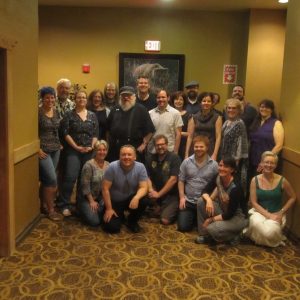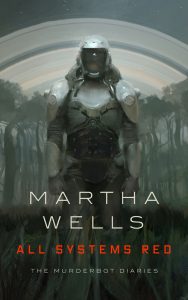There is one question I really dread when I talk about my job as a literary translator: “Of the works you translated, what would you recommend?”
First of all, I usually don’t get to choose. Translating is my day job, and as much as I love it, it has to be well-paid work. Um, as well-paid as it gets when you’re at the bottom of the publishing industry’s food-chain. So I can’t be picky. Also, as long as it’s genre, I get paid roughly the same, whether it’s a super easy quick and dirty text without linguistic finesse, or a complex work testing the limits of language. So what I want is a good mixture of quality and quantity: I don’t like to get bored to death by samey, bland stuff, but I also can’t afford to spend forever and a day on a demanding text.
I got lucky a few times. Or that’s what I thought. I got to work with a few of my favorite authors – some of them I adored before getting the chance to translate them, some I discovered on a job. But then the book market happened, and there’s nothing much left to recommend anymore.
But that said, I have to admit I tend to find something to appreciate in nearly every work I translate. I look very, very closely at all those texts, by doing several drafts and chipping away at the surface until I can hope to capture the real thing. During this process, I stumble upon the annoying traits of my heroes (because I notice every over-used mannerism and every lazy phrase). But more than that, I always discover something worth reading, something charming, something working really well. I might not be thrilled in the beginning, but at the second draft, I have an idea about what the author set out to do, and I can see where they succeeded.
Whatever it is, whatever it does, I get attached. And I get sucked in in ways that are not entirely healthy.
Every line of thought, every development of plot and character, every plunge off imaginary cliffs, I have to follow. I have to incorporate the whole thing, and articulate it anew. But I can’t do it by my own rules, with my coping mechanisms, my ways. I have to do stick to whatever works for somebody else.
That’s a good thing, in an of itself. It’s what I love most in fiction: It shows me the world in a way I can’t see it myself. I learn a lot this way. But I also have to swallow things I don’t like. I have to stay on track when I’d rather run off in another direction. It gets hard when there’s not much common ground, and even harder when the text hits home due to entirely individual reasons.
I suppose that’s one reason why I write in English. German fiction is work, it’s adapting my voice to the demands of another person’s ideas. After some hours of doing this, it’s often difficult to step out of this mode again.
So in this weird, complicated relationship I develop with my translations, recommendation is a category that doesn’t fit anymore. But even after going through all of this, there are some texts I still love.

 What I enjoyed most, though, was the movie’s beginning at Themyscira, showing a whole island of women at all levels of society. I could have watched this forever. Actually, I was able to watch it for quite some time, because Wonder Woman starts out slow-paced. Which would have been perfect, hadn’t the rest of the film been totally detached from these scenes. I felt there should have been some reconnection later on, anything to justify the time we spent with that awesome Amazon action.
What I enjoyed most, though, was the movie’s beginning at Themyscira, showing a whole island of women at all levels of society. I could have watched this forever. Actually, I was able to watch it for quite some time, because Wonder Woman starts out slow-paced. Which would have been perfect, hadn’t the rest of the film been totally detached from these scenes. I felt there should have been some reconnection later on, anything to justify the time we spent with that awesome Amazon action.

